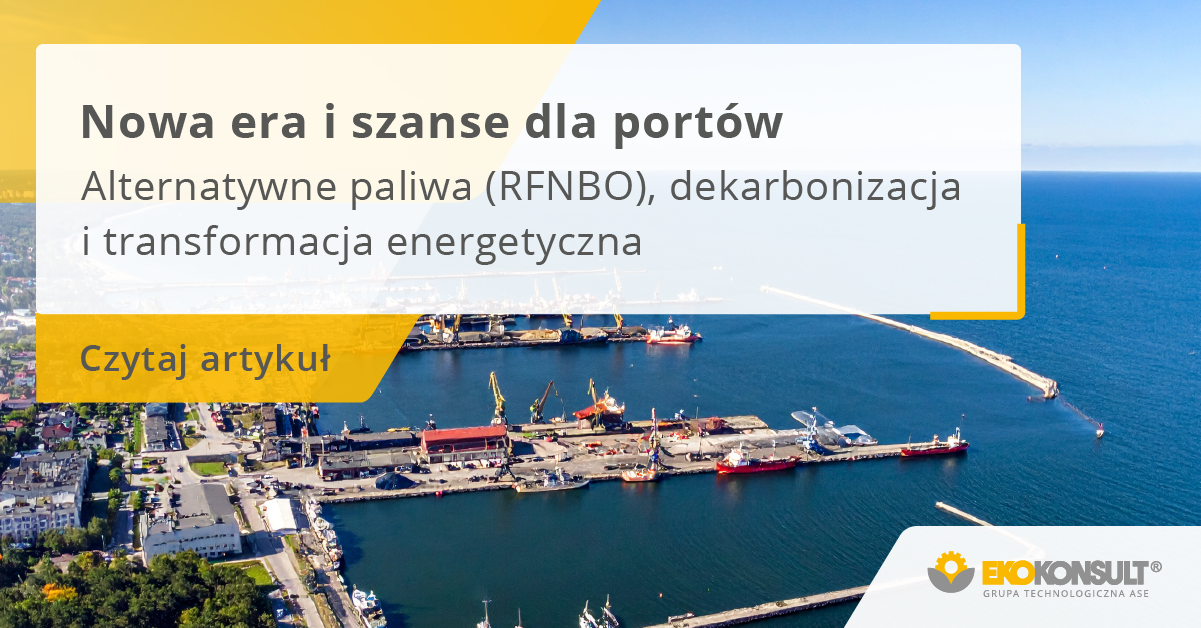
 News
News New Era and New Opportunities for Ports – Alternative Fuels (RFNBO), Decarbonization, and Energy Transformation
New Era and New Opportunities for Ports – Alternative Fuels (RFNBO), Decarbonization, and Energy Transformation News
News New Era and New Opportunities for Ports – Alternative Fuels (RFNBO), Decarbonization, and Energy Transformation
New Era and New Opportunities for Ports – Alternative Fuels (RFNBO), Decarbonization, and Energy Transformation
The IMO (International Maritime Organization) and the EU are introducing increasingly strict emission standards (e.g., FuelEU Maritime), prompting ports to revise their strategies and seek new solutions. Alternative fuels hold significant potential in this regard.
Decarbonization of maritime transport can be achieved through the use of green hydrogen, produced with renewable energy (e.g., offshore wind farms in the Baltic Sea). This enables ships to operate without emitting CO₂.
Hydrogen can also power port infrastructure, including cranes, port vehicles, and backup generators, helping reduce emissions within the port itself.
Integrating ports with local energy systems allows for the storage of surplus energy from offshore wind farms in the form of hydrogen. Ports can serve as buffer points between green energy production and consumption.
Thus, ports become energy hubs, developing energy storage systems and smart power management, investing in shore-to-ship (OPS) installations, and integrating charging systems for autonomous vessels.
OPS (onshore power supply) enables ships in port to be powered from the land-based grid, reducing emissions during port stays.
Hydrogen and ammonia bunkering refers to refueling ships with these alternative fuels, analogous to traditional oil bunkering. Both fuels have the potential to significantly reduce greenhouse gas emissions, cutting CO₂, NOₓ, and SOₓ emissions compared to conventional fuels.
Currently, hydrogen and ammonia bunkering is in the pilot or planning phase in many ports.
Planning and executing projects in the maritime sector requires not just vision and capital but a thorough understanding of regulations and standards. The success of alternative fuel deployment in seaports depends on collaboration between various institutions, governments, port operators, the maritime industry, and the energy sector.
As one can imagine, the process is quite complex. Here is a simplified outline of the four main steps in such an investment:
EKO-KONSULT has supported strategic and complex investments in the maritime economy for over three decades. We combine legal, environmental, technical, and operational expertise to ensure a smooth and compliant process – from planning to infrastructure launch.
EKO-KONSULT has been involved in nationally significant infrastructure projects, such as:
The company has also prepared risk analyses and safety documentation for entities such as PGNiG, PERN, DCT Gdańsk, PKN Orlen, the former LOTOS Group, Orlen Petrobaltic, Energobaltic, Energa-Operator, and the Polish Power Grid Company (PSE).
Planning an investment in new infrastructure, a hydrogen hub, power station, or energy storage facility? We invite you to explore our full support offering and get in touch. Together, we will prepare your project for a low-emission future.

|
EKO-KONSULT Spółka z o.o. ul. Narwicka 6, 80-557 Gdańsk + 48 58 554 31 38 (39) |
|
Write to us: |
|
Branch in Krakow: 32- 085 Modlnica, +48 669 890 009 |